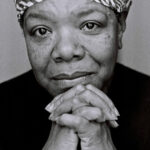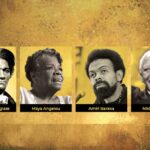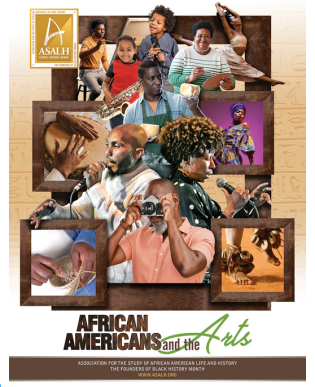Frederick Douglass: A Luminary in the Tapestry of Black History
Frederick Douglass, an indomitable force against the shackles of slavery, emerged as a beacon of freedom, wisdom, and leadership. His life’s journey, from the bonds of enslavement to becoming a prominent abolitionist, writer, and orator, has left an enduring legacy in black history. In this comprehensive biography, we delve into the various facets of Frederick Douglass’s life, exploring his family, education, achievements, and the profound impact he made on the history of African Americans.
Early Life and Family:
Born around 1818 in Talbot County, Maryland, Frederick Douglass entered the world as Frederick Augustus Washington Bailey. Separated from his mother at an early age, Douglass grew up in the harsh conditions of slavery. His family ties, strained by the brutality of bondage, became a driving force in his quest for freedom.
Escape to Freedom:
In 1838, at the age of 20, Douglass made a daring escape from slavery, boarding a train to the free states of the North. His journey to freedom marked the beginning of a life dedicated to challenging the institution of slavery and advocating for the rights of the oppressed.
Education Against All Odds:
Denied formal education during his enslaved years, Douglass demonstrated an unwavering commitment to learning. Despite the severe consequences imposed on slaves caught reading, he clandestinely acquired literacy skills, recognizing the transformative power of education.
Family Life:
In 1838, Douglass married Anna Murray, a free African American woman. Their union flourished amidst the challenges of the era, and together they raised five children: Rosetta, Lewis Henry, Frederick Jr., Charles Remond, and Annie. The Douglass family became a testament to the strength of familial bonds in the face of adversity.
Achievements and Contributions:
1. Abolitionist Leadership:
Frederick Douglass emerged as a powerful voice in the abolitionist movement, advocating for the immediate end of slavery.
2. Prolific Writer:
His literary contributions include three autobiographies, with “Narrative of the Life of Frederick Douglass, an American Slave” being a seminal work in African American literature.
3. Editor and Publisher:
Douglass founded and edited several abolitionist newspapers, such as “The North Star” and “Douglass’ Monthly,” using these platforms to disseminate anti-slavery sentiments and promote civil rights.
4. Oratorical Brilliance:
Renowned for his eloquence and powerful oratory, Douglass captivated audiences with speeches that resonated with the fervor of the abolitionist movement.
5. Advisor to Presidents:
Douglass advised Presidents Abraham Lincoln and Andrew Johnson on issues related to race, civil rights, and the post-Civil War Reconstruction era.
Legacy:
Frederick Douglass’s legacy is woven into the fabric of black history, leaving an indelible imprint on the struggle for freedom and equality. His contributions endure in the following ways:
1. Civil Rights Movement Precursor:
Douglass’s work laid the foundation for the Civil Rights Movement, influencing leaders who would follow in his footsteps.
2. Literary Excellence:
His autobiographies remain essential reads, offering profound insights into the realities of slavery and the human spirit’s triumph over adversity.
3. Symbol of Resilience:
Douglass’s life serves as a symbol of resilience, inspiring individuals to persevere in the face of oppression and inequality.
Top 20 Most Asked Questions About Frederick Douglass:
1. When was Frederick Douglass born?
Frederick Douglass was born around 1818 (exact date unknown).
2. How did Douglass escape slavery?
Douglass escaped slavery in 1838 by boarding a train to the free states.
3. What were Douglass’s major achievements?
His major achievements include being an abolitionist leader, author, editor, and advisor to presidents.
4. What are Douglass’s famous works?
His most famous work is “Narrative of the Life of Frederick Douglass, an American Slave.”
5. Who was Frederick Douglass married to?
He was married to Anna Murray Douglass.
6. How many children did Douglass have?
Douglass and Anna Murray had five children: Rosetta, Lewis Henry, Frederick Jr., Charles Remond, and Annie.
7. What role did Douglass play in the abolitionist movement?
He was a prominent leader and speaker in the abolitionist movement, advocating for the immediate end of slavery.
8. What newspapers did Douglass publish?
Douglass published newspapers such as “The North Star” and “Douglass’ Monthly.”
9. What advice did Douglass give to Presidents Lincoln and Johnson?
He advised Presidents Abraham Lincoln and Andrew Johnson on issues related to race and civil rights.
10. How did Douglass contribute to women’s rights?
He advocated for women’s rights, attending the Seneca Falls Convention and supporting the suffrage movement.
11. What impact did Douglass have on the Civil Rights Movement?
His work laid the groundwork for the later Civil Rights Movement.
12. What was Douglass’s stance on education?
He emphasized the transformative power of education, as reflected in his own life.
13. What is Douglass’s most famous quote?
“If there is no struggle, there is no progress.”
14. Where is Frederick Douglass buried?
He is buried at Mount Hope Cemetery in Rochester, New York.
15. Did Douglass hold any political positions?
Douglass held various diplomatic positions, including U.S. Marshal and Minister to Haiti.
16. How many autobiographies did Douglass write?
He authored three autobiographies.
17. What is the significance of “The North Star”?
“The North Star” was a newspaper founded by Douglass to advocate for the abolition of slavery and civil rights.
18. Was Douglass involved in the Underground Railroad?
While not a conductor, Douglass supported the Underground Railroad and assisted others in their escape.
19. What is Frederick Douglass’s enduring legacy?
Douglass’s legacy includes being a symbol of resilience, activism, and intellectual prowess, with a lasting impact on civil rights and literature.
20. How did Douglass influence the Reconstruction era?
Douglass provided crucial advice to Presidents during the Reconstruction era, advocating for equal rights and opportunities for African Americans.
Conclusion:
Frederick Douglass’s journey from enslaved to emancipated serves as a testament to the triumph of the human spirit and the enduring pursuit of justice. His legacy, imprinted in the pages of literature and etched in the annals of black history, resonates as a call for continued resilience and activism. As we reflect on the life of this luminary figure, we find inspiration in his unwavering commitment to freedom, education, and the relentless pursuit of equality.




